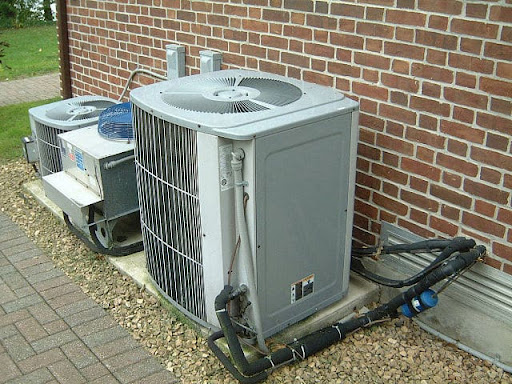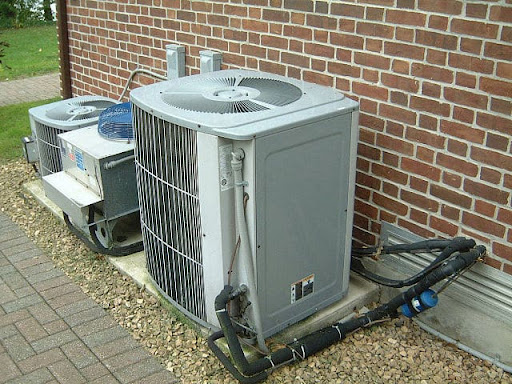
As summer heatwaves hit, the comfort of our indoor environments often hinges on one key component: air conditioning. While air conditioning systems are primarily designed to cool the air, they also play a significant role in controlling humidity levels, making them an essential aspect of modern living. This post delves into how air conditioning systems manage humidity, the importance of humidity control for comfort and health, and tips for optimizing your air conditioning system for better humidity management.
Understanding Humidity
Before we explore the role of air conditioning in humidity control, it’s important to understand what humidity is. Humidity refers to the amount of moisture present in the air. It is typically expressed as a percentage known as relative humidity (RH), which indicates how much moisture the air holds relative to its maximum capacity at a given temperature.
High humidity can make the air feel warmer than it is, leading to discomfort. Conversely, low humidity can cause dryness, leading to issues such as dry skin, respiratory problems, and static electricity. Ideally, indoor humidity levels should be maintained between 30% and 50% for optimal comfort and health.
How Air Conditioning Systems Control Humidity
Air conditioning systems are designed to cool the air, but they accomplish this by removing moisture from it as well. Here’s how the process works:
- Evaporation: Air conditioning systems use refrigerants to absorb heat from indoor air. As warm air passes over the evaporator coils, the refrigerant inside the coils absorbs heat and changes from a liquid to a gas. This process cools the air while also reducing its humidity because cooler air can hold less moisture.
- Condensation: When the warm, moist air comes into contact with the cold evaporator coils, the moisture in the air condenses into water droplets. This is similar to how dew forms on grass in the early morning. The condensed water is then collected in a drip pan and expelled outside, effectively reducing indoor humidity levels.
- Circulation: Once the air has been cooled and dehumidified, it is circulated back into the living space. This cycle continues as long as the air conditioning system is running, providing a consistent method for controlling indoor humidity levels.
Benefits of Humidity Control
Controlling humidity through air conditioning provides several benefits:
- Comfort: Maintaining optimal humidity levels helps to enhance overall comfort. High humidity can lead to a sticky, uncomfortable environment, making it difficult to relax or sleep. On the other hand, properly managed humidity contributes to a more pleasant indoor atmosphere.
- Health: Excess humidity can encourage the growth of mold and mildew, which can trigger allergic reactions and respiratory issues. Conversely, low humidity can dry out mucous membranes, making the body more susceptible to infections. By controlling humidity, air conditioning systems contribute to a healthier living environment.
- Preservation of Belongings: High humidity can damage furniture, electronics, and other belongings. It can lead to warping, rust, and deterioration. Maintaining appropriate humidity levels helps to preserve the integrity of your possessions.
- Energy Efficiency: Proper humidity control can improve the efficiency of your air conditioning system. When humidity levels are high, your air conditioner has to work harder to cool the air, leading to increased energy consumption. By keeping humidity in check, you can enhance energy efficiency and potentially lower utility bills.

Optimizing Air Conditioning for Humidity Control
To maximize the humidity control capabilities of your air conditioning system, consider the following tips:
- Regular Maintenance: Routine maintenance of your air conditioning system is essential. This includes cleaning or replacing air filters, checking refrigerant levels, and ensuring that the condensate drain is clear. Regular maintenance ensures that your system operates efficiently and effectively.
- Use a Dehumidistat: Some air conditioning systems come equipped with a dehumidistat, which allows you to set specific humidity levels. This feature helps maintain optimal humidity without excessive cooling, ensuring comfort and energy efficiency.
- Seal Your Home: Proper insulation and sealing of windows and doors can help prevent humid air from entering your home. Ensure that all gaps and leaks are sealed to maintain indoor humidity levels effectively.
- Ventilation: Consider using exhaust fans in areas prone to moisture, such as kitchens and bathrooms. These fans help expel humid air from your home, allowing your air conditioning system to work more efficiently.
- Utilize Ceiling Fans: Ceiling fans can help circulate cooled air more effectively, reducing the load on your air conditioning system. They create a wind-chill effect, making the room feel cooler without lowering the temperature significantly.
- Monitor Indoor Humidity Levels: Invest in a hygrometer to monitor indoor humidity levels. This will help you keep track of moisture levels and adjust your air conditioning settings accordingly.
Conclusion
Air conditioning systems play a vital role in controlling indoor humidity levels, contributing to overall comfort, health, and preservation of belongings. By understanding how air conditioning works to manage humidity and implementing strategies to optimize its performance, you can create a comfortable living environment year-round.
Regular maintenance, the use of dehumidistats, proper sealing, ventilation, and monitoring of humidity levels are all essential components in maximizing the efficiency of your air conditioning system. In a world where climate control is crucial for comfort, understanding and leveraging the humidity control capabilities of your air conditioning system is more important than ever. If you are seeking a source of inspiration and guidance about the role of air conditioning in humidity control, visit www.abacusplumbing.net/air-conditioning/ for more info.
